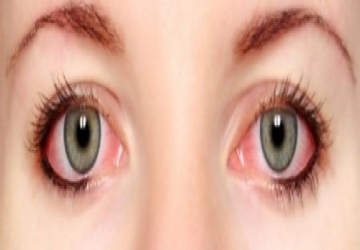
Diagnosis and treatment of eye allergies
With the question of Dr. Muhammad Hantira, an honorary assistant professor, ophthalmology department, Umm Al-Qura University, Saudi Arabia
Explain that: -
You can get the appropriate diagnosis by referring to an ophthalmologist or an eye allergy specialist, who often comes out with the diagnosis after inquiring about the symptoms and taking a tissue sample in an examination called (the skin prick test).
As for treating sensitive eyes, there are many options and methods, and these are the most important of them:
1- Eye drops
There are over-the-counter types of eye drops available in pharmacies to suit different eye allergies.
It is possible to resort to eye drops that contain active ingredients to combat allergies, or only to use eye drops that work to moisturize the eyes (or the so-called artificial tears).
And since some types of eye drops are not suitable for everyone and may even cause allergic reactions, you must always consult your doctor first about the types most appropriate to the patient's condition.
2- Medicines
There are many medications available that can significantly reduce the symptoms of eye allergies, such as: antihistamines, decongestants, and steroids.
3- Allergy injection
In very severe cases of eye allergy, which other treatments may not work with, it is possible to resort to allergy shots, through which the body is injected with allergens with a gradual increase in the dose each time to improve the body's reaction to these causes.
Cases similar to eye sensitivity
Dr. Hantereh indicated: -
There are cases that may appear at first glance very similar to eye allergy, but they are in fact completely different cases, and they must be dealt with in a different way, and these are some of them:
• Dry eyes.
• Conjunctivitis caused by a virus or bacteria.
• Blockage of the tear ducts.